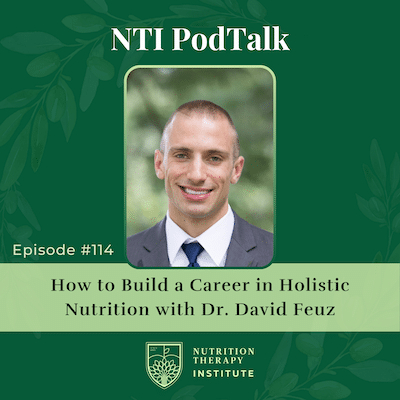
Share this post!
Welcome back to part 2 of our 3-blog series on brain health.
When my dad was living in an assisted living facility, I noticed a stark gender imbalance among the residents of the memory care unit. For several months, he was 1 of 2 gentlemen residents in a sea of 10 ladies, which I don’t think he minded one bit! Their caretakers confirmed this ratio was typical. Statistically, two-thirds of total Alzheimer’s patients are women. Women over the age of 60 are currently twice as likely to develop Alzheimer’s than breast cancer. [1] Why is this?
Researchers are studying the relationship between hormones and the aging brain. Estrogen is a major player in cognitive health, providing neuroprotection throughout a woman’s reproductive years. As a woman goes through menopause, estrogen levels plummet and the brain has to find different ways to compensate. Among all causes of stroke, ruptured brain aneurysms occur twice as often in women compared to men, especially between fifty and fifty-nine years of age, which is the typical age range of menopause and subsequent drops in estrogen levels. [2] This matters especially for women because women are equipped with more neuro-protective estrogen during their reproductive years. As estrogen levels decline with age, the brain must find alternative ways to perform efficiently. Statistics estimate that up to 80% of women going through menopause have the potential to develop neurological symptoms. [3] Simply put, women are at a heightened risk for developing dementia.
At their peak performance, our hormones exist in a tightly regulated endocrine system of feedback loops, working in our favor to regulate metabolism, growth and development, tissue and sexual function, reproduction, sleep, recovery, and mood regulation. This exquisite system is extremely vulnerable to imbalance, and when the scales tip, the body compensates by producing more or less of other hormones in an attempt to correct the imbalance. Alisa Vitti, author of the book Woman Code, says it best: “The only way your hormones can achieve balance is if your body does the job – and only if you safeguard and nurture it, with every meal and every habit, every day, to optimize endocrine function.” The endocrine system influences every aspect of our mental and physical health, and that’s why it’s so important to nourish and balance our hormones at every age as a means of protecting the brain.
Here’s how to support healthy hormone balance with food.
Most of these tips are related to blood sugar, which is paramount in supporting your hormones:
Limit your sugar intake: Start reading labels for added sugars. Aim for no more than 6 (ideally 3) tsp of added sugar per day. Sugar is hidden in all kinds of packaged foods: mayonnaise, bread, yogurt, granola bars, salad dressings, etc. Sugar sends our insulin on a roller-coaster ride and knocks the rest of our hormones out of balance. Hormonal imbalance can affect our sleep, mood, reproductive health, sexual appetite, focus and concentration, memory, and more. Honey, maple syrup, and raw and coconut sugars also affect our blood sugar balance. Limit these, too.
Know your carbs: Low-quality carbs spike blood sugar and deliver little to no essential nutrients. Examples: candy bars, breakfast cereals, French fries, white flour pasta, sugar-sweetened beverages, white bread, cake, and cookies. High-quality carbs provide the body with building blocks for energy and fiber and other essential nutrients. Examples: vegetables, fruits (especially berries), quinoa and other properly prepared grains (if tolerated). A high-quality, low-carb way of eating for brain health does include unlimited vegetables, which contain mostly carbs. Think about the quality of the carbs you eat and aim to increase your intake of high-quality carbs while reducing low-quality carbs.
Upgrade your breakfast: The first meal you eat sets the tone for the day. Choosing a low quality, high carb breakfast will send your blood sugar and insulin soaring. Eating clean protein and a high-quality fat to break your overnight fast will keep you satiated and support your hormones and your brain. Pay attention to the first thing you eat in the morning: is it predominantly a carb, a fat, or a protein? If it’s a carb, switch to a clean protein with a bit of high-quality fat – and notice how you feel.
Example Of Small Changes To Make Now:
- When a sugar craving hits, have a handful of raw almonds, some sliced apple with cinnamon and nut butter, or half an avocado with a bit of honey and salt.
- Instead of candy, ice cream, cookies, etc, for dessert, have a hot cup of herbal tea or a piece of fruit. Instead of buying the treats above, buy seasonal fruit.
- Try a new vegetable a few times a week to bring in variety and increase your fiber intake.
- Add ¼ C fermented vegetables to your lunch salad. Try to eat fermented veggies at least every other day.
- Drink one additional glass of water each day.
- If you normally have cereal or something bread-y for breakfast, try having eggs sautéed in ghee with avocado and a green salad a few times a week. Notice if your energy levels change on the days you do this.
Congratulations for making it this far!
In terms of brain health, we’ve only begun to scratch the surface. Yet after reading about how to support your brain by supporting your heart and your hormones, you’ve got a great start in what it takes to form long-term brain-supportive habits. There’s more work to discover. Next week, let’s find out how the gut and immune system affect the brain.
Read The Series:
References:
Masconi, Lisa, The XX Brain: The Groundbreaking Science Empowering Women to Maximize Cognitive Health and Prevent Alzheimer’s Disease, Penguin Group (USA) LLC., March 10, 2020.
[1] Mosconi, XX brain, pg ix [2] Mosconi, The XX Brain, p. 96 [3] Mosconi, XX Brain, pg 52Image:
Image by Andrea Piacquadio is free for use by Pexels
About the Author:
Jacqui Gabel is a graduate of NTI. She is passionate about child nutrition and health equity. She cooks privately for individuals and families in the greater Denver area and creates content for Sticky Fingers Cooking. She’s happiest with her hands in the dirt, behind a camera, at a concert, or in a noisy, crowded kitchen. Visit Real Food Desire for more, including an eBook for additional tips on how you can optimize your long-term cognitive health.
Learn About Becoming A Nutrition Therapist Master
Share this post!


















